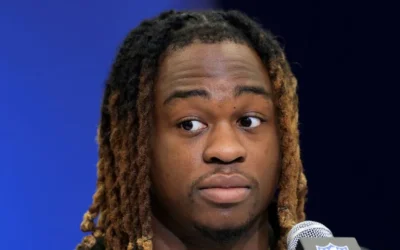The Complex Character of Kim Wexler
Since her first appearance in Better Call Saul, Kim Wexler has captivated audiences with her depth and complexity. Portrayed by the exceptionally talented Rhea Seehorn, Kim’s character has undergone a rollercoaster of transformation throughout the series. From an ambitious attorney to a pivotal figure in the narrative, she highlights the dualities of morality, ambition, and betrayal.
Defying Expectations
In the final season, audiences were left pondering one crucial question—how would Kim’s journey conclude? As fans, we often project our expectations onto characters we’ve grown attached to. Rhea Seehorn remarked, “I definitely thought she could…” echoing sentiments shared by many supporters of Kim. But what does it mean to redefine a character’s journey through our expectations?
Kim Wexler as Saul Goodman’s Counterpart
If Saul Goodman represents the morally ambiguous hustle, Kim Wexler serves as a reminder of inherent potential and ethics still tethered to reality. It’s fitting to observe how their paths interweave dramatically. If Kim was to Saul what Jesse Pinkman was to Walter White, she represents the humanity in Saul’s manipulative world.
The Dynamic Between Kim and Saul
Their relationship brings to light the struggle between ambition and ethics. In season six, we see Kim making choices that challenge viewers’ expectations. While Saul spirals further into deception, Kim’s trajectory makes her a reluctant anti-hero. Despite the temptation to go down the path of convenience and power, Kim holds onto a spark of morality—the kind that sets her apart from Saul.
Echoes of Hank Schrader
While some fans might have likened Kim to Jesse, others felt her role mirrored that of Hank Schrader in the broader mythos of Breaking Bad. Just as Hank kept Walter’s moral compass in check, Kim initially serves as Saul’s tether to reasonable decisions, practicality, and integrity. However, circumstances flip their dynamics and showcase how proximity to chaos can corrupt even the strongest principles.
Struggles of Relaying Moments of Clarity
Rhea Seehorn’s performance consistently underscores Kim’s evolution. She maintains a grounded presence that exemplifies the character’s struggle between ambition and conscience. The tension between Kim and Saul becomes a narrative focal point, demonstrating how moral dilemmas affect relationship dynamics. Kim is a character who ultimately prioritizes her independence and personal choices, breaking free of a narrative that imposes a linear expectation of good or evil.
The Almost Confirmed Popular Theory
As the show reached its climax, several theories circulated regarding Kim’s fate. One prevalent theory, which retained considerable traction among fans throughout season six, was the possibility of her demise or a complete moral downfall which, while compelling, did not align with the heart of what Better Call Saul represents.
Why the Theory Failed to Materialize
While drama often relies on catastrophic conclusions to heighten tension, Kim’s survival amidst chaos was far more powerful and relevant. The decision to keep her alive allowed for a nuanced exploration of her consequences and choices rather than subscribing to conventional storytelling methods. It celebrates the complexity of human nature rather than diminishing it to a predictable arc.
The Fallacy of Linear Narratives
Expectations shape our experience of storytelling; however, Better Call Saul has challenged typical narrative structures, favoring complexity instead. Kim’s choices reflect the continuous struggle many face throughout life and challenge viewers to consider that moral evolution isn’t linear. The final moments leave the audience with a poignant reminder that life is messy, multifaceted, and often a mix of victories and defeats.
Hope in Ambiguity
For many viewers, Kim’s journey ends on a note of hopeful ambiguity. While there are pitfalls and losses surrounding her path, they serve a larger narrative of hope and authenticity. She walks away from Saul not merely as an ending but as a character that represents personal growth and moral reflection.
Conclusion: Kim Wexler’s Legacy
The culmination of Kim Wexler’s character arc in Better Call Saul elevates the series from a simple prequel to an intricate tapestry interwoven with human emotion, morality, and growth. Rhea Seehorn’s gifted portrayal of Kim resonates deeply because it reflects the conflicts everyone experiences—between ambition and ethics, love and independence. As the show ultimately concludes, Kim leaves an indelible mark not only on Saul Goodman but on the audience, epitomizing the complexities of choice in a precarious world. She embodies the idea that our paths, while often twisted, can lead to self-discovery and agency.







